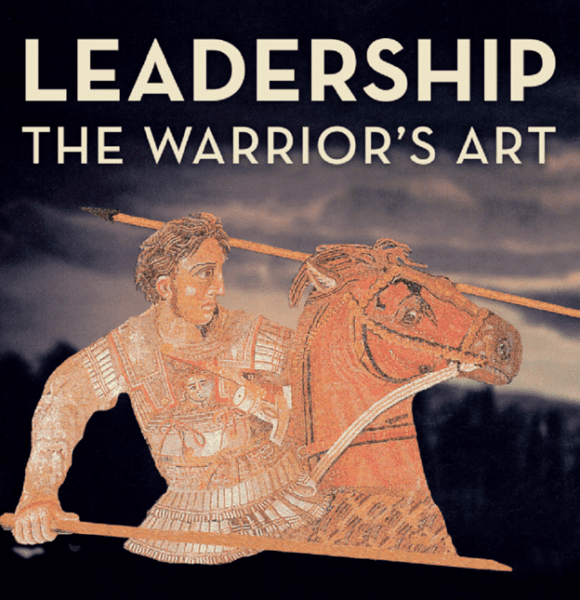
Christopher D. Kolenda’s editorial compilation book Leadership: The Warrior’s Art is simply put, an ode to warriors. Not a cheap set of semantics, but an actual breakdown and toast to what makes – again, simply put, a warrior. Not just a warrior in a military context, but in a leadership context.
A true leader, as far as Kolenda and his fellow writers and thinkers are concerned, is a warrior. “America has emerged from a very difficult 2020. The coronavirus pandemic, social unrest, divisive politics, and economic dislocations have created enormous challenges at home and with our international partners. Highly public examples of bad leadership are commonplace. I hope this book nudges forward the expectations of good leadership and helps you inspire people to contribute their best to your team’s success,” Kolenda states, regarding Leadership’s inception. “…Leadership is about trust—trust in the leader’s vision, trust in the leader’s competence and character, trust in the leader’s respect and care for those under their charge. Every solid bond between people has trust as its bedrock.
Every failed relationship is ultimately an actual or perceived breach of that trust. Successful leaders earn the trust and respect of others, and in doing so, they inspire willingness to contribute one’s best and most authentic self to the mission.”
AMAZON: www.amazon.com/Leadership-Warriors-Christopher-D-Kolenda/dp/0970968213
Kolenda is the writer on the first passage of the book – essentially a meditation on the classical cruxes of the modern tenets of leadership. Regardless of Kolenda’s overall presence literarily, it genuinely is one of my favorite contributions to the read. Kolenda classes things up from the get-go with a quote from Xenophon: ‘Strong commanders are those who can impress upon their troops that they must be followed even through fire or danger of any kind . . . people follow because they recognize his qualities; it would be reasonable to say that a man like this goes to war with strength in his hand, since so many hands are prepared to obey his mind’s directions; and great indeed is the man who can use his mind rather than his physical might for great achievements.’
“Leadership, then and now, means inspiring others to contribute their best to your team’s success,” he proclaims. “Success means to advance the common good: the vision, mission, goals, values, standards and expectations, and strategy of the community or organization. People contribute their best when they are committed to the common good rather than merely complying with rules and regulations. As Plato suggests, true leaders touch the soul of others, turning them toward a good purpose so that they can succeed sustainably, even in times of duress and danger. This ‘turning’ is about education and persuasion. Willing acceptance of the ‘good’ creates intrinsic motivation.”
These genuinely beautiful passages make what could have been a solid but fairly unremarkable reading experience that much more wholesome, and that much more special. Kolenda and the other writers never resort to cheap sentimentality, but they aren’t afraid to pack genuine emotion into the words, vivifying what otherwise could be fairly choir-exclusive content.
Clay Burton
